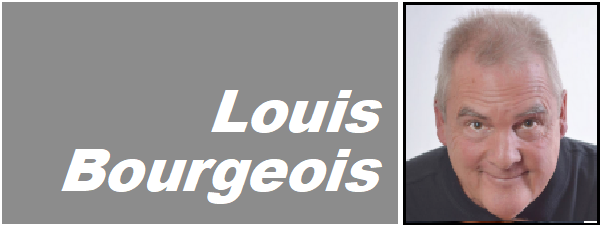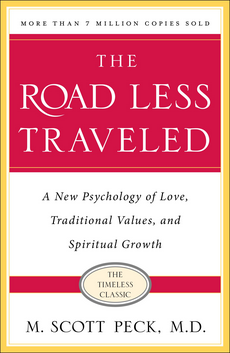Although it is good to be a seeker, it is even better to be a finder
Personal transformation is difficult. The way of transformation involves legitimate suffering, and it is the design and purpose of the egoic mind to avoid suffering. The ego brandishes two tools, denial and projection, in order to avoid suffering. In doing so it creates a rigid structure and great unhappiness.
creates a rigid structure and great unhappiness.
Many years ago, early in my own process of personal transformation, I was entranced by a book that would become one of the greatest bestsellers of all time, M. Scott Peck’s The Road Less Traveled. At the time Peck’s ideas were quite profound and even a bit provocative. Peck wrote about this process of avoiding legitimate suffering, how it creates more suffering in the form of neurotic suffering. The essence of all neurosis is the hidden belief “there is something wrong with me.”
 This is what the ego is constructed to defend against, denying the true nature of suffering and looking to place blame on other people, places and things. The person then becomes lost in a bitter struggle, seeking outside the self for some form of redemption and happiness, but never finding. The motto of this egoic condition is “seek but do not find.” I have been quite amazed along the way in my journey to see how the vast majority of seekers remain devoted to the seeking, avoiding any true transformation. A deep truth is this: simply by the act of seeking one is reinforcing the believe in not having. A true reversal of thinking is necessary, and toward this end the Conscious Dying process is designed.
This is what the ego is constructed to defend against, denying the true nature of suffering and looking to place blame on other people, places and things. The person then becomes lost in a bitter struggle, seeking outside the self for some form of redemption and happiness, but never finding. The motto of this egoic condition is “seek but do not find.” I have been quite amazed along the way in my journey to see how the vast majority of seekers remain devoted to the seeking, avoiding any true transformation. A deep truth is this: simply by the act of seeking one is reinforcing the believe in not having. A true reversal of thinking is necessary, and toward this end the Conscious Dying process is designed.
Another voice from this time of the late 1960’s and 1970’s that made quite an influence on me was Elisabeth Kubler Ross. Her work with death and dying was seminal and I became a student, attending many of her lectures and workshops, as I had done with Dr. Peck. She laid out a basic framework for how people deal with death, whether one’s own or that of a loved one. Denial, anger, bargaining, depression and acceptance are the five stages she described. Is it any wonder when I offer to those attracted to my work this Conscious Dying process they run for the hills? Most will not willingly walk this path without some tragedy to open the way.
The collective tragedy now known as 9/11 was a clear turning point for me. I can remember distinctly as I watched on television as the second plane hit the World Trade Center the feeling in my gut. I knew that it was over, the charade I had been living in my attempt to fit into a culture that was not feeding my soul. Nor was my marriage or my business. My Conscious Dying process, ending my life in suburban Minnesota, began in earnest. It would take me ten years to extract myself fully, becoming truly ready for a new world and a new way of living.
M. Scott Peck devoted much of his life after the great success of The Road Less Traveled to community and community building. It was this influence that led me to the firm conviction that it is only by living in conscious community that we can overcome the hurdles of the egoic condition and experience true transformation. Only then can we become true finders, reminding me of a great little quote I carried around with me for many years.
The quote is from Jonathan Livingston Seagull: “It is good to be a seeker. But sooner or later you have to become and finder, and then it is good to give what you have found as a gift to the world.”
______________________
Louis Bourgeois lives in Cuenca with his wife and baby. He teaches courses in Conscious Living and Conscious Dying. He can be contacted at louisb333@hotmail.com





















